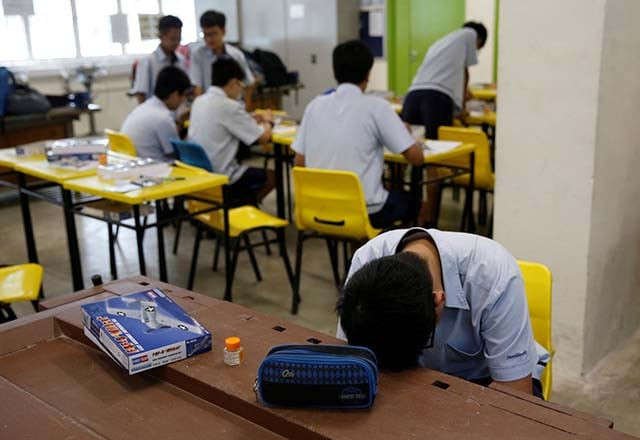Your children can ‘catch’ stress from friends and teachers in school
'Organisational culture in schools can make a notable difference for early-career teachers’ burnout levels'

If the students and teachers of a school seem to be stressed there are high chances of the stress percolating to a new colleague. PHOTO: REUTERS
The study, published in a journal called Teaching and Teacher Education found that there is a significant link between mental collapse or burnout caused by stress among teachers in their early careers and their exposure to a culture of burnout existing in schools.
If the students and teachers of a school seem to be stressed there are high chances of the stress percolating to a new colleague, Hindustan Times reported.
Kenneth Frank, a professor at the Michigan State University in the United States, said: “If you are surrounded by people who are downcast or walking around under a pall of burnout, then it has a high chance of spilling over, even if you don’t have direct contact with these folks.”
Mind over matter: ‘Psychology is key to overall education, health’
“This study is one of the first to provide evidence that the organisational culture in schools can make a notable difference for early-career teachers’ burnout levels,” he added.
Researchers of the study had analysed data of a survey on burnout of 171 teachers working in their first four years of the profession along with analysing 289 experienced teachers who served as mentors for the younger teachers.
According to Frank, the level of burnout was also tied to the existing education policy environment.
Added pressure may also come from controversial policies such as those used to evaluate teachers performance based on the results of their students along with a lack of voice in the assignment of students.



















COMMENTS
Comments are moderated and generally will be posted if they are on-topic and not abusive.
For more information, please see our Comments FAQ